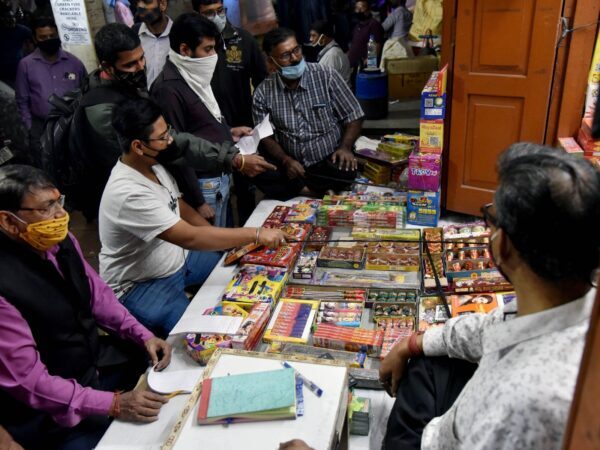
Sikkim Bans Firecrackers, Single-Use Plastic Ahead Of Diwali
The Sikkim Pollution Control Board on Saturday issued an order prohibiting the manufacturing, sale, and bursting of all types of sound and light-emitting firecrackers in the state ahead of Diwali, which falls on October 20.
The Sikkim Pollution Control Board on Saturday issued an order prohibiting the manufacturing, sale, and bursting of all types of sound and light-emitting firecrackers in the state ahead of Diwali, which falls on October 20.
In its order, the Pollution Control Board urged citizens to refrain from using firecrackers and single-use plastics, encouraging eco-friendly alternatives such as light displays and other environmentally conscious celebrations during the festival.
Meanwhile, in Aligarh, ahead of the Diwali festival, the firecracker market has been set up, and people are gradually visible in the market, making purchases.
At the firecracker market in Aligarh’s Numai Ground, various types of firecrackers are available, but particularly this time, firecrackers bearing the names of “Operation Sindoor” and Indian cricketer Rinku Singh are present in the market, and their sales are booming.
Separately, on October 15, the Supreme Court relaxed its earlier blanket ban on firecrackers in the Delhi-National Capital Region (NCR), permitting the sale and use of green firecrackers subject to strict conditions.
A bench comprising Chief Justice of India BR Gavai and Justice K Vinod Chandra allowed green firecrackers to be sold and burst only from October 18 to October 20.
The court specified that the permissible bursting of green firecrackers shall be confined between 6 am and 7 am and 8 pm and 10 pm on the two days, i.e., the one before and on the Diwali day.
The apex court made it clear that the relaxation is only on a test case basis and the same shall be only for the period specified.
Emphasising the need for a “balanced approach,” the court said celebrations should be allowed in moderation without compromising environmental concerns.
“We have to take a balanced approach, taking into account the conflicting interests and permitting in moderation, while not compromising the environmental concerns arising,” the bench stated. (ANI)


